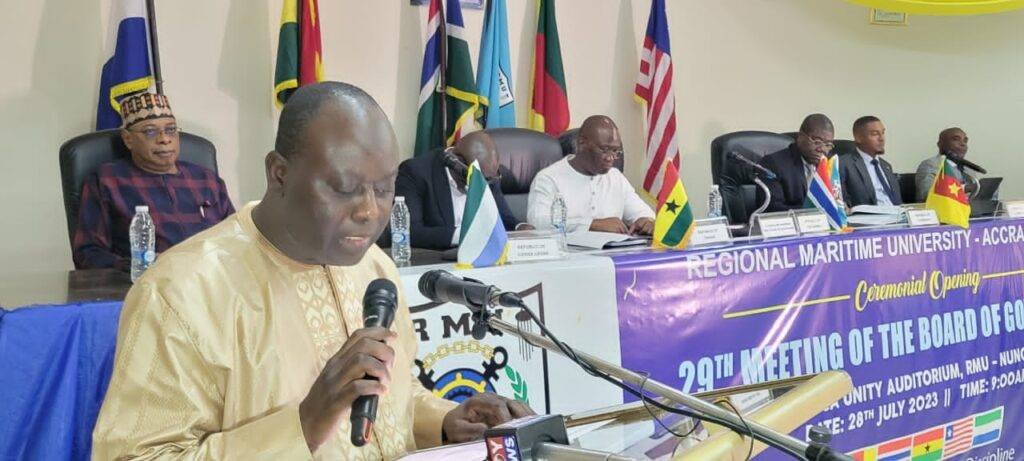The Chancellor and the Chairman of the Board of Governors for the Regional Maritime University (RMU), Mr Ebrima Sillah, has expressed concern over the critical shortage of trained personnel to work on African ships and vessels.
He said, currently 400,000 trained personnel were needed to occupy the gap within the sector to promote maritime trade in Africa.
“This has been a challenge as the opportunities within the maritime sector which could be utilised for economic growth within the continent is yet to be tapped,” he said.
He made these remarks at the 29th Board of Governors Meeting of the Regional Maritime University (RMU) in Accra on Friday.
According to the Chancellor, efforts were being made to collaborate with the private sector to bridge the gap and ensure many African youth were employed.
“The RMU is the only university helping to train these persons not only to be absorbed by the sector but also serve as maritime engineers and port managers,” he said.
“The opportunities are yet to be tapped especially by countries and private sector. Hence the approach is to collaborate with private sector since they are the major employers. They need to be aware of the opportunity being created and assist in training,” he stated.
“We encourage the private sector to invest heavily in training so that the gap can be minimised, especially the opportunities available through the African Continental Free Trade Area (AfCFTA).
The Minister for Transport, Mr Kwaku Ofori Asiamah, in a speech read on his behalf by Deputy Minister, Hassan Tampuli, said the government was committed to supporting the university to train personnel to fill the gap.
The maritime industry, he said, contributed to more than 80 per cent of customs revenue in Ghana and the largest contributor to the revenue base through taxes and levies on imported and exported goods.
“Therefore, our commitment to the training of the manpower for this very important industry has been unwavering,” he said.
“The RMU continues to play an important role in fostering the development of skilled maritime professionals and promoting collaboration among West African countries to enhance the growth and success of the maritime industry in the region,” he stressed.
He added that, efforts must be made to ensure the RMU maintained its international standards and reputation.
He urged member countries and management of the RMU to foster collaborations geared towards the growth of the university to deliver on its mandate
BY MICHAEL D. ABAYATEYE

